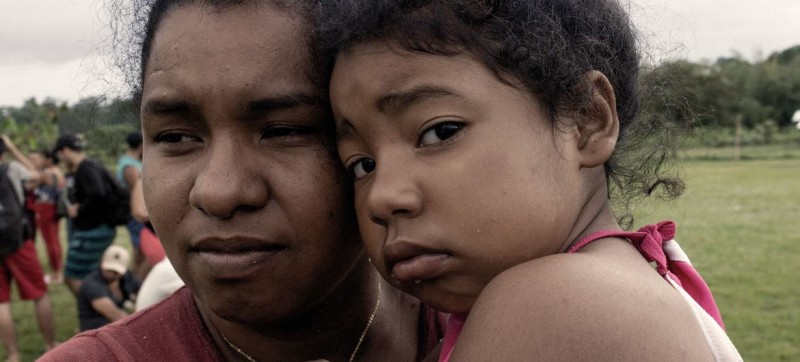© UNHCR/Nicolo Filippo Rosso In Texas, USA, a woman hugs her four-year-old daughter after making the perilous journey through the Darien Gap between Colombia and Panama.
The UN refugee agency (UNHCR) and the International Organization for Migration (IOM) issued a call for a more collaborative approach to better respond to the anticipated impact of changes on the southern US border.
“The challenges facing the Americas call for ambitious, innovative, and principled cooperation among all stakeholders,” the agencies said.
Such a plan must be based on international law and genuine solidarity to advance protection and solutions for refugees and migrants, and align with the framework laid out the Global Compact on Refugees, Global Compact for Safe, Orderly and Regular Migration, as well as the Los Angeles Declaration on Migration and Protection.
Tweet URL
New US restrictions
Welcoming positive initiatives to expand resettlement and other regular pathways in the region, the agencies remain concerned about new restrictions on access to asylum following the “long overdue” lifting of the Title 42 public health order by the United States.
Since the pandemic’s outset in 2020, Title 42 has been used by US immigration officials some 2.5 million times at the southern border, to expel people to Mexico or their home country, without assessing what risks they faced as a result of being returned.
Barriers preventing people from exercising the fundamental human right to seek asylum are unacceptable and contrary to States’ international obligations, they said, adding that the new US Government rule that restricts access for asylum-seekers who arrive irregularly, after transiting through another country is incompatible with principles of international refugee law.
While the number of people approaching the US border has grown in recent years, the agencies said that the majority of the people on the move in the Americas are still hosted by countries in Latin America.

© UNHCR/Nicolo Filippo Rosso Asylum seekers receive vital shelter and support along the United States’ southern border.
Multi-country approach
“The challenges presented by the movement of refugees and migrants cannot be solved by any country in isolation,” they said.
“Real progress can only be made through joint efforts to address the causes of displacement and irregular migration.”
The agencies said more could be done through support to communities that are hosting the majority of displaced people, providing access to fair and effective asylum procedures and other legal stay arrangements, and facilitating access to safe and regular pathways as alternatives to perilous journeys.
More effective response
A more effective response calls for collaborative engagement by States and other stakeholders to expand access to protection and asylum and regular pathways to migration, while strengthening solutions, the agencies said.
The US-led expansion of refugee resettlement and other regular routes is a welcome step that can present real alternatives for desperate people who are risking their lives to find safety and solutions, they said.
Facilitated and expanded access to resettlement, family reunification, humanitarian parole, and labour mobility schemes, can save lives and protect people from smuggling, trafficking and other forms of violence, they said.
UNHCR and IOM are ready to redouble efforts to work with all countries and existing regional mechanisms to make this a reality, the agencies said.
However, expanding resettlement and other regular pathways cannot replace the responsibility of States to provide people with access to territory and asylum procedures, they urged.
Any return agreements between States, including of asylum-seekers to a third country, must uphold in practice the principle of non-refoulement, the prohibition on forced return of people to situations where their lives and safety are at risk, they stressed.




Comments are closed, but trackbacks and pingbacks are open.